ESPON Conference
“Territorial Development in Europe:
Potentials and Challenges for Iceland, Liechtenstein, Norway, and Switzerland – and for the European Union”
Brussels, 11 March 2014
Timing: 16h00 – 18h00
Background
In the development of the European Union the neighbouring EFTA countries play a particularly important role as partners in driving Europe forward in the world, as markets for exchange of goods, innovation and people, etc. For Iceland, Liechtenstein, Norway and Switzerland the European Union plays a similar role.
Territory matters more and more in development policy. Globalisation creates new markets further away and increases the dependencies of economies and the need for connections that was not known 10-20 years ago. Furthermore developments in European countries and the EU influence developments in Iceland, Liechtenstein, Norway and Switzerland, and vice versa.
Inside Europe, the diversity of development potentials and challenges are nowadays recognised and integrated in EU policy. The fact that diversity prevails make tailor made regional and national policy mixes necessary. This in turn, requires a solid and reliable territorial evidence base to support an efficient use of scarce resources and the necessary growth in the “right” places.
Aim and Structure
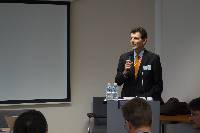 |
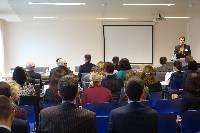 |
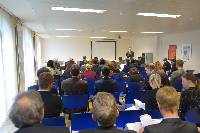 |
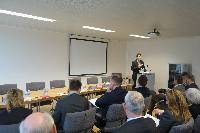 |
In cooperation with the Federal Office for Spatial Development ARE, Switzerland, the ESPON 2013 Programme organised a conference to present and discuss ESPON evidence on the territorial development of Iceland, Liechtenstein, Norway and Switzerland.
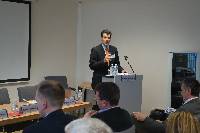 |
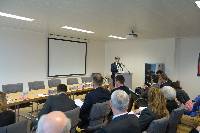 |
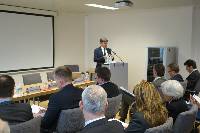 |
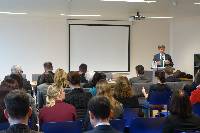 |
The main aim of the conference was to present and debate development potentials, challenges and scenarios addressing some of these issues:
- Territorial development and cooperation: Additional options for Partner States and EU Member States jointly contributing to European smart, sustainable and inclusive growth.
- International, national and regional gateways: Options for jointly stimulating growth, providing services of general economic and social interest.
- Transport corridors and flows of goods, people and information: Promoting important infrastructures and sustainable connections between EU and Partner States, and to the wider world markets, such as through Arctic waters.
- Territories with specific potentials and challenges: Harvesting upon the territorial diversity of specific types of territories and supporting areas in need.
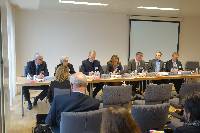 |
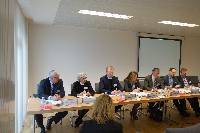 |
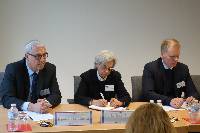 |
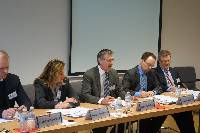 |
The discussion was supported by the ESPON Territorial Observation no.10.
A roundtable discussion at the end of the conference allowed high-level representatives from Iceland, Liechtenstein, Norway, Switzerland and the EU to discuss and exchange on common initiatives for growth and territorial cohesion.
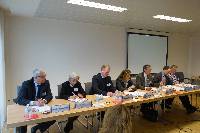 |
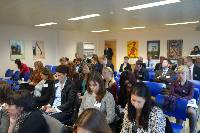 |
Broad conclusions from the day included:
- In policy making it is very important to have good knowledge about the starting point and the position of a given territory in comparison to others. This is where ESPON plays an important role for regions and cities in Partner States and in the EU.
- The EU Member States and Iceland, Liechtenstein, Norway and Switzerland are highly interdependent in trade and transport, making Partner States important for the EU, and the EU important for the Partner States.
- Being highly integrated in a common European context, ESPON Partner States are important for a balanced territorial development of Europe.
- The four ESPON Partner States belong to the current centre-north powerhouse of Europe that scores particularly well in relation to indicators measuring smart, sustainable and inclusive growth.
- It is very inspiring for the EU and its Member States to cooperate with Iceland, Liechtenstein, Norway and Switzerland on issues in relation to territorial challenges.
- Territorial diversity is an asset for both, EU Member States as well as the four ESPON Partner States. The latter and their regions have similar territorial specificities as regions in the EU being mountainous or island regions. This allows for added value cooperation and exchange of experience and mutual learning.
- Some considerations were raised in relation to specific development challenges and opportunities, e.g. Iceland plays a particular role as air transport hub, linking European regions with North America; Liechtenstein is comparatively more vulnerable to climate change, since this will affect the whole country, not just a few regions; Norway may play an important role in the future if the Arctic ice keeps on melting, opening up for new maritime transport opportunities; for Switzerland as one of the major transit countries in Europe, good accessibility via railways is very important.
- In spite of similarities between the ESPON Partner States and EU Member States, there are also important differences which should be highlighted e.g. in maps that better zoom in to make certain territorial challenges visible.
- As more and more crucial decisions will in the future be taken at regional level it would be important to have more ESPON results as well as maps on that level.
When and Where
The Conference took place on 11 March 2014.
Venue
Mission of Switzerland to the EU
Place du Luxembourg 1
B - 1050 Brussels
Further information
Please find below the programme of the conference the presentations shown.
Photos: courtesy of Fiorella Lichtmannegger, Mission of Switzerland to the EU.
Contact the ESPON Coordination Unit (info@espon.eu) should you need further information.
This Conference is organised within the framework of the
ESPON 2014 Capitalisation Strategy / Actions related to European Seminars and Workshops

